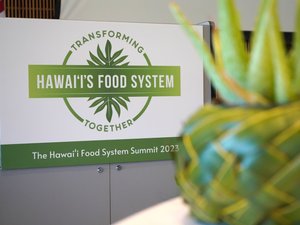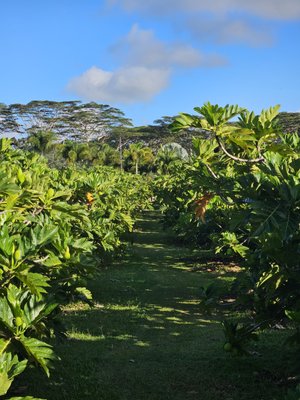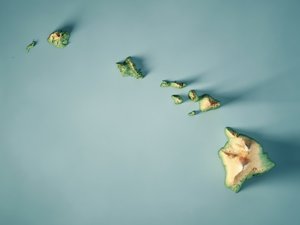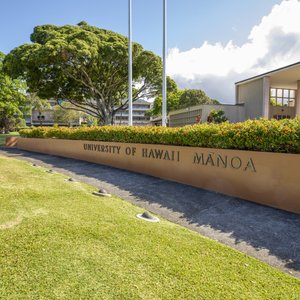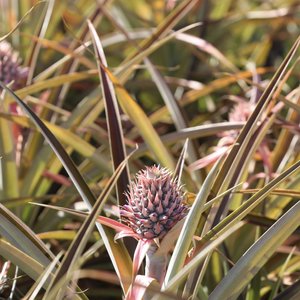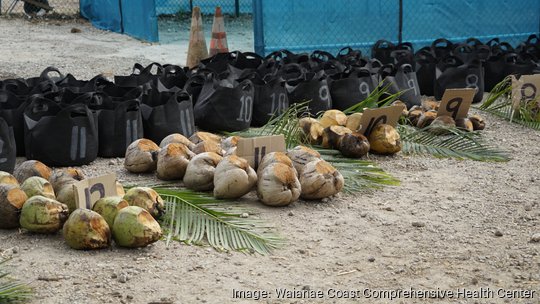
Waianae Coast Comprehensive Health Center's Elepaio Social Services recently invited members of the community to plant 1,200 coconut seeds, with the goal of increasing the numbers of niu — or Indigenous coconut trees — on Oahu.
The planting took place at WCCHC's main campus in Waianae on Dec. 18. The event included the WCCHC’s Native Hawaiian Healing Center’s Kupuna Council, Waianae Moku Kupuna Council and students from local high schools.
"One of the pressing issues affecting Waianae is the threat to food security and nutrition, particularly among Native Hawaiian and socially disadvantaged populations," said Jesse Mikasobe-Kealiinohomoku, WCCHC's food access manager, via email to Pacific Business News.
According to representatives of WCCHC, Indigenous coconut trees have been negatively impacted by the invasive Asiatic rhinoceros beetle. The beetle has reduced the island's population of coconut palms, which Mikasobe-Kealiinohomoku said are critical to the region's Indigenous food systems. The beetle has also damaged populations of other canoe crops, such as loulu, a palm tree native to Hawaii; maia, a banana tree; and hala, a fruit-producing tree, Mikasobe-Kealiinohomoku said.
WCCHC is Oahu's largest federally qualified health care center. It offers primary care, behavioral health, nutrition, dental care, diagnostic services and a pharmacy within the same clinic, according to its website. WCCHC was No. 5 on this year's List of Employers in West Oahu, ranked by number of employees.
The center started in 1972 with a staff that included five people and one doctor, according to its website. Today, the clinic has satellite locations in Nanakuli, Kapolei, Ewa Beach, Waipahu and Waiola. It also has school-based health clinics at Waianae High School, Waianae Intermediate School, and Nanakuli High & Intermediate School.
The estimated cost of the tree-planting project was about $7,000 and included supplies to build a nursery, as well as grow bags, water, soil and other miscellaneous items, according to representatives of WCCHC.
The coconut rhinoceros beetle, which arrived on Oahu in 2013, is native to Africa, China, Myanmar, India and Southeast Asia but was introduced to islands in the Pacific, where it has no natural enemies, according to the state's Department of Land and Natural Resources website.
"This invasive species poses a severe risk to the cultivation and availability of traditional foods, further jeopardizing the community's access to culturally appropriate and sustainable nutrition," Mikasobe-Kealiinohomoku told PBN.
To report sightings of the beetle on any island in Hawaii, call 643-PEST or file a report online here: 643pest.org.

